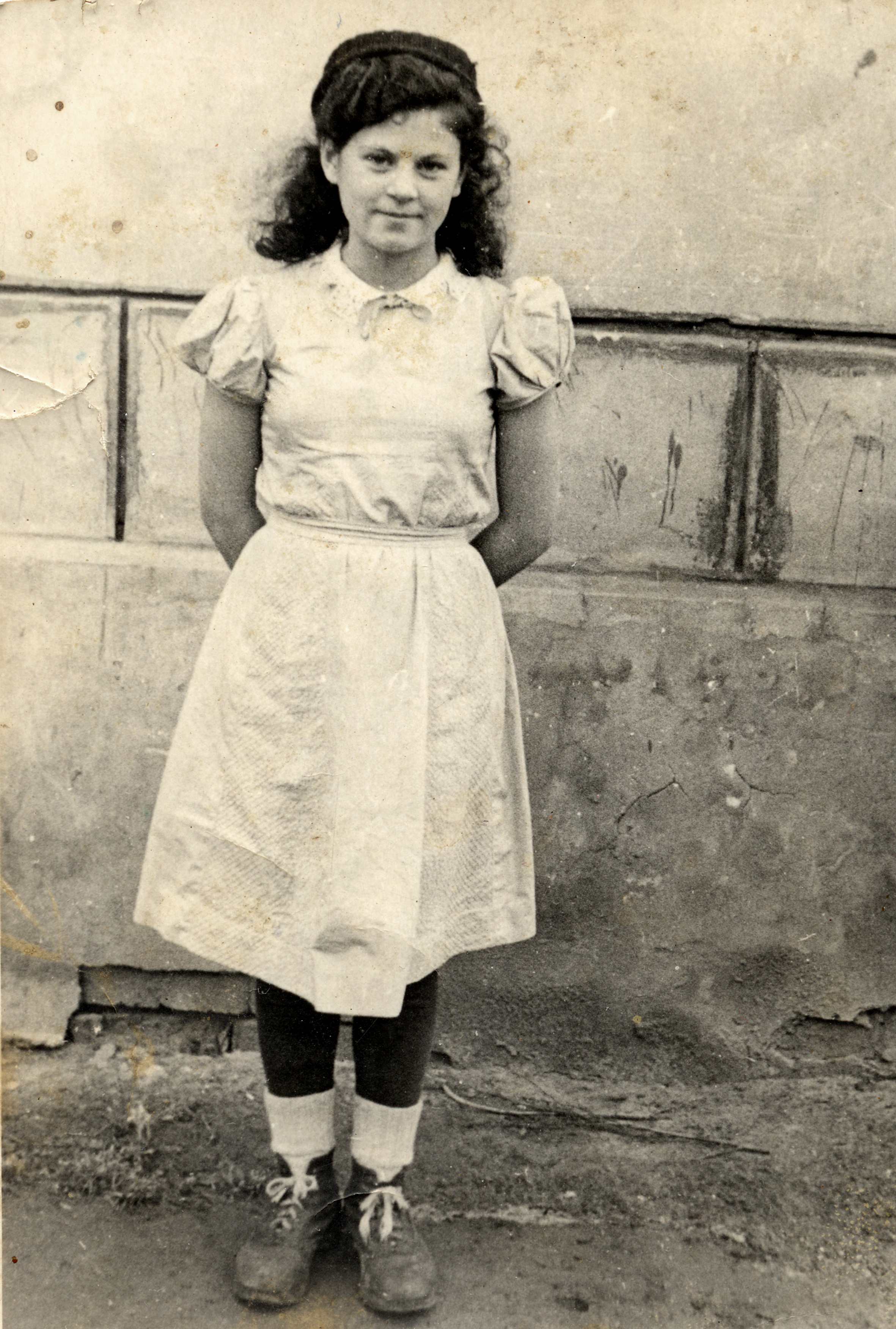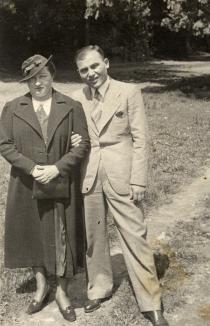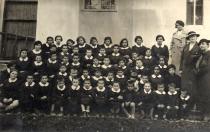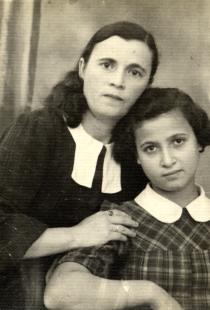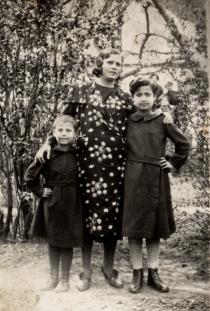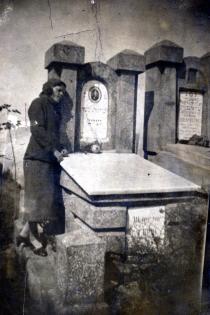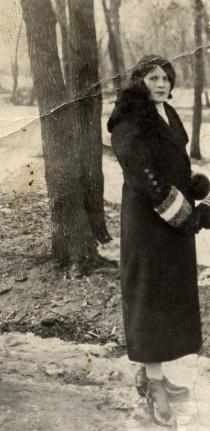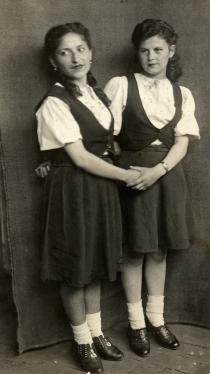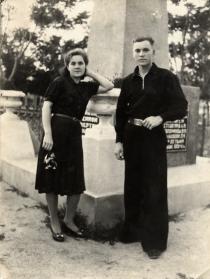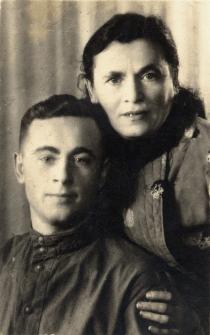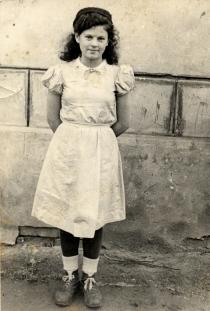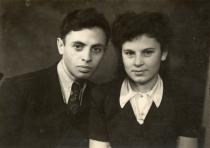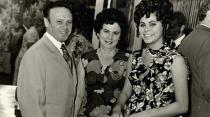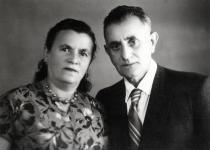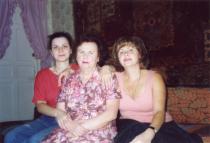This is me. This photo was taken in Balashikha where I studied and worked at the cotton spinning factory in 1947.
After the war, Yelena Ivanovna, who became my second mother and helped hide me during the war, helped the girls to go to work and sent me to a children's home in the village of Konstantinovka, Kurgan district, Krasnodar Krai. She also went to look for her son and mother whom she had lost during the war. Saying 'good bye' to me, my adoptive mother promised to take me away from the children's home, but this didn't happen. I stayed in this children's home for three years. The tutors were very good to me. I was very obedient and humble having grown up in an orphanage where I learned to obey adults. However, here I was also the only Jewish child, and some children abused me, though the tutors stood up for me and shamed the offenders. I received a letter from Yelena Ivanovna. She found her family in Yeisk town and lived there. This was the hard period of life, we had no sufficient food or clothing. We studied at school before lunch, and in the afternoon I had to shepherd cows.
In 1946 all girls between 14 and 16 years were sent to various vocational schools. I was sent to the cotton spinning factory in the town of Balashikha near Moscow. I studied in a vocational school and was also an apprentice at the factory. After finishing the vocational school I became a worker at the factory. Students were provided with food and uniforms. I lived in the dormitory where I shared a room with nine other girls. We got along well and helped and supported each other. At the age of 16, I already worked eight to twelve hours like an adult worker. We ate potatoes, bread and macaroni. We only had meat on big holidays, but I was no longer starving. I had forgotten my native Jewish language [Yiddish] by then. I could only speak Russian.
